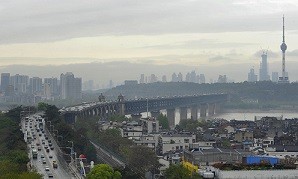Experts have agreed that the Chinese government's call for a greener economy--the advancement of a low-carbon economy and the establishment of a global energy network--will bring massive business opportunities to the country, outnumbering the possible risks the nation could face.
On Sept. 21, the State Council has unveiled an integrated reform plan on the environment, highlighting its intensified efforts to use resources more efficiently, and to ensure that its modernization platforms are in harmony with nature.
In the same month, Chinese President Xi Jinping also shared during the U.N. Sustainable Development forum that his administration wants to establish a global energy network in a bid to meet the world's power demand for greener alternatives.
Mu Lingling, Tianjin Green Supply Chain Center's general manager, said that "the green economy is unprecedentedly stressed in China, indicating both large investment requirements and huge business opportunities."
Additonally, the recently inked China-U.S. Joint Presidential Statement on Climate Change remarked that China committed to undertake green, low-carbon, climate-resilient and sustainable development via the passage of policies, actions and other institutional innovations.
In an HSBC report mailed to the Xinhua News Agency, the government is said to be planning to "further develop its green financial system by encouraging financial institutions to issue more green credit (credit which takes the environmental credentials of companies into account), and develop more green investment products which are able to use capital market institutions such as green stock indices."
For the country's economic planning body, the National Development and Reform Commission, China's battle against climate change is a major avenue where it can boost its economic restructuring and attain its vision of sustainable development.



























